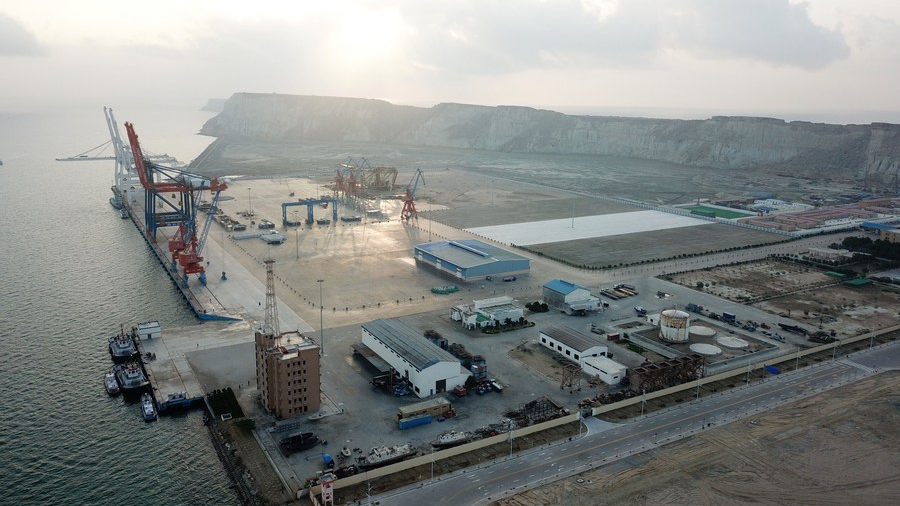Interconnectivity is the key for the future of humanity
The international community remains mired in a major public health crisis, as well as ensuing military conflicts and major-power rivalries. But what does the future hold for the global system? Apparently, interconnectivity, cooperation and collaboration with respect to differences and the equality between each nation are the only way forward to usher in more positive changes for the world.
The China-Pakistan Economic Corridor (CPEC), the flagship project of the Belt and Road Initiative (BRI), stands as the very embodiment of that amazing spirit. Professor Wang Yiwei at Renmin University of China explained that the BRI's land-sea connectivity not only helps China's Xinjiang Uygur Autonomous Region and the Central Asia region by setting up a shortcut to enter the India Ocean, but also helps Pakistan narrow the gap between north-south development and allows Pakistan to better integrate into the process of industrialization, urbanization and globalization.
It will also benefit neighboring countries such as Afghanistan and the countries in the South Asian subcontinent, and assist with achieving the goals of the 2030 Agenda for Sustainable Development Goals. Reema Shaukat, Communication strategist Institute of Regional Studies said that the BRI is an enormous initiative for connecting Asia with the Central Asian Republics, Far Eastern, Middle Eastern, African and European countries.
Dr. Tahir Mumtaz, head of China Study Center at the COMSATS University, looks at the issue from a different angle. Gwadar, the last land-stop before the Arabian Sea, has long been considered as a goldmine with a natural deep-sea port, he said. Gwadar is the central nexus on, which all of the CPEC is geared towards. And connecting a path from it all the way to China has meant developing a mammoth transportation corridor.

A view of Gwadar Port in southwest Pakistan's Gwadar, January 29, 2018. /Xinhua
Dr. Tahir said that, as the next stage of the CPEC development starts, private investors and firms are flocking to Gwadar with their expertise, experiences and capital to make the most of this unprecedented opportunity for them. Dr Fazal-ur-Rahman, director at the Pakistan Institute of China Studies in Sargodha University, echoed Dr. Tahir's assessment, saying that the CPEC project is a historic initiative, which will help Pakistan attract more foreign and domestic investors and create jobs and business opportunities for the locals.
Sabah Aslam, executive director at the Islamabad Institute of Conflict Resolution, said that it has been very significant to witness this mega project emerging as a reality over the years. She said the project has delivered long-lasting and positive results for both Pakistan and China. Its first phase of early harvest projects valued at over $19 billion is nearly complete.
Journalist and Sinologist Muhammad Zamir Assadi says that China has been playing a crucial role in maintaining global and regional peace, security, stability and development. This is the reason why many sovereign nations and regions have joined the BRI and other initiatives initiated by China. Beijing remains committed to a vision of common, comprehensive, cooperative and sustainable security. It is also a nation state that urges the world to discard the Cold War and zero-sum mentalities, rejects efforts that promote the law of the jungle, and encourages the settlement of conflicts through peaceful means, Assadi said.
Is the world headed for fragmentation, confrontation or convergence? For now, the winds are blowing in the direction of fragmentation and confrontation. But the countervailing forces are also strong. With initiatives such as the BRI and the results already achieved, interconnectivity and cooperation have already captured a firm footing on the Eurasian sphere. It will serve as an anchor for those standing committed to the peaceful path of development and win-win cooperation.